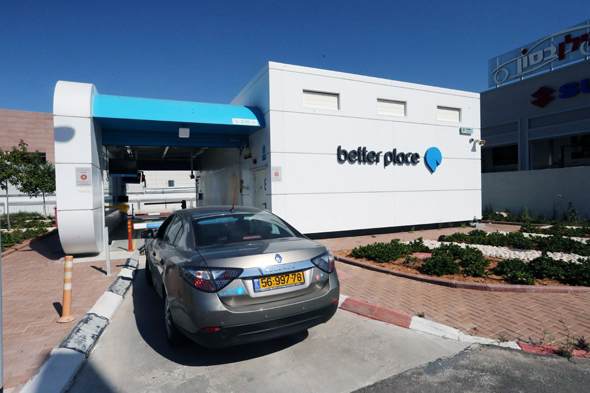Over Five Years, 3,307 Israeli Startups Went Belly Up
The now-defunct companies raised nearly $4 billion between them, almost a quarter of which was raised by once ambitious electric car company Better Place
15:0924.12.18
3,307 Israeli high-tech companies ceased to operate between 2012 and 2017, according to a new report by Israel-based market research firm IVC Research Center Ltd. A total of $3.79 billion was raised by these companies prior to their closure, amounting to $632 million per year on average since 2012. Approximately two-thirds, or $2.53 billion of the total sum invested in these companies, was raised by companies in the initial revenue stage.
 A Better Place car at a charging station. Photo: Tomerico
A Better Place car at a charging station. Photo: Tomerico
For daily updates, subscribe to our newsletter by clicking here.
There are currently 8,360 active Israeli tech companies, according to the report. On average, Israeli startups have raised a combined $4.43 billion each year since 2013.
 A Better Place car at a charging station. Photo: Tomerico
A Better Place car at a charging station. Photo: Tomerico
The average lifespan for a deceased startup is four years from a company’s last financing round, according to the report.
Related stories:
- Can More Israelis Join the Country’s Tech Boom? Two Reports Draw Conflicting Conclusions
- Multinationals Spent Over $6 Billion on Research and Development in Israel in 2016
- For Israel, New Statistics Raise Brain Drain Concerns
1,228, or 37% of all companies that closed, were active in the internet sector and raised just $468.9 million combined. In contrast, only 432 life sciences companies closed between 2012 and 2017, raising a combined sum of $808 million before being shut.
The most well-funded of the bunch, Better Place Inc., was established in 2007 as a developer of battery-run electric cars and an operator of a grid of charging stations. The company partnered with the Renault-Nissan alliance and raised almost $900 million within a short period, dazzling investors such as Morgan Stanley and HSBC Holdings PLC with the promise of a future not dependent on gas. It crashed just as spectacularly: Better Place deployed less than 1,500 cars before it shut its doors in 2013, its assets liquidated and sold for only $450,000.



